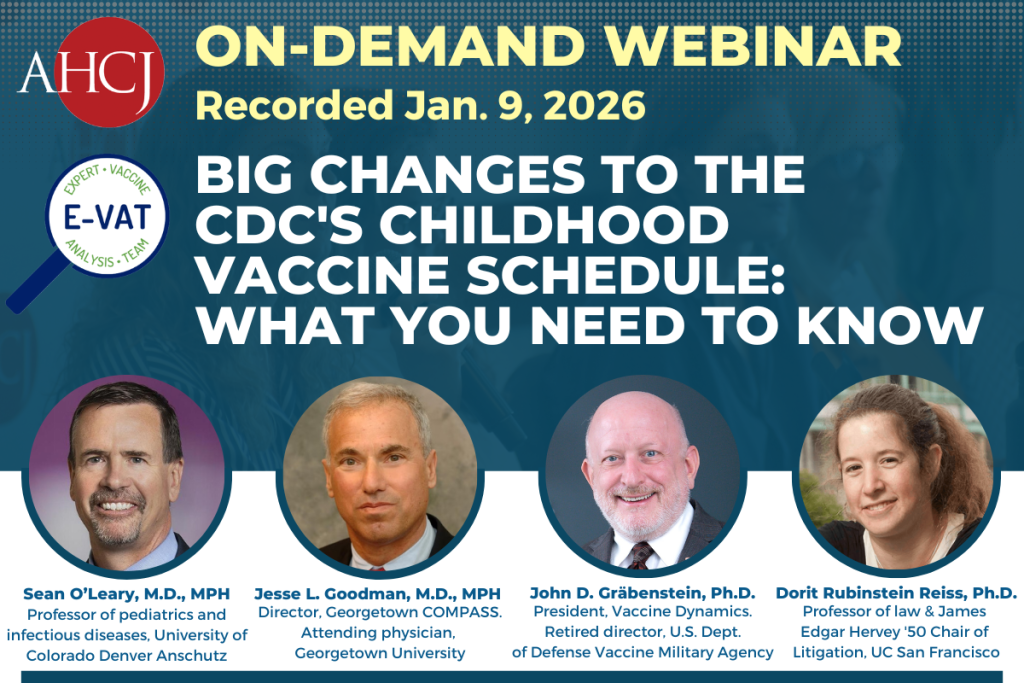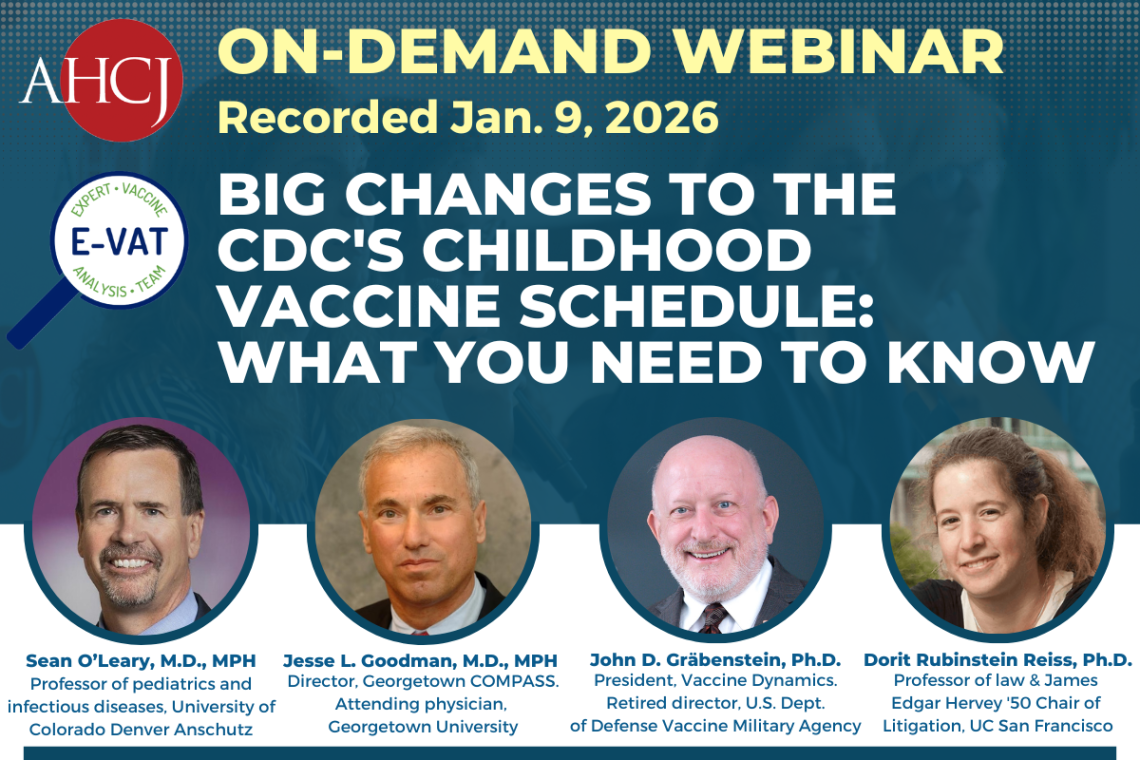Health Beat
Monitoring the Pulse of Health Care Journalism
Ad
-
How to care for your mental health over the next few years
A second Trump administration will likely make health reporters’ jobs more chaotic (again). Here’s how journalists — and a psychologist…

-
Big changes to the CDC’s childhood vaccine schedule: What you need to know
In this webinar, hear from the experts about the CDC’s decision to shift six immunizations off the recommended childhood vaccine…

-
Health equity stories to follow in 2026
As we head into 2026, here are AHCJ Health Equity Beat Leader Lara Salahi’s predictions for topics poised to dominate…

-
What freelancers should know about the impending health insurance premium hikes
In a Q&A, an expert shares what is likely changing for many self-employed people who buy health insurance through the…

-
Why air pollution is an underreported health story of the decade
Air pollution is a global public health emergency. Journalists must emphasize health equity, economic loss and systemic bodily harm.

-
Covering the big changes in the CDC’s recommended childhood vaccine schedule
The CDC has changed the national recommended children’s immunization schedule in opposition to evidence and major public health organizations.

-
Freelancer Michelle Crouch uncovers a growing trend: charging patients for health questionnaires
A conversation with a neighbor inspired a story about a shocking trend among Charlotte, N.C. hospitals.

-
Writing about 3D printing’s applications in medicine
From pediatric cardiology to orthopedics and more, journalists can find interesting use of 3D printed models in the medical field.

-
A billion lives in the balance: How we prepare for unbearable heat will shape the century
More than 1 billion people live in areas where extreme heat and humidity will surpass the survivability limit by the…

-
Only 11% of patient portals are accessible in multiple languages
Only a small fraction of U.S. hospital patient portals are accessible in multiple languages.

-
New Medicaid work rules will challenge enrollees and states
Officials in 42 states have until 2027 to put new Medicaid work requirements in place so that millions can enroll…

Featured Resources
Work the Health Beat.
Get exclusive news and training opportunities from AHCJ in your inbox once a week.















